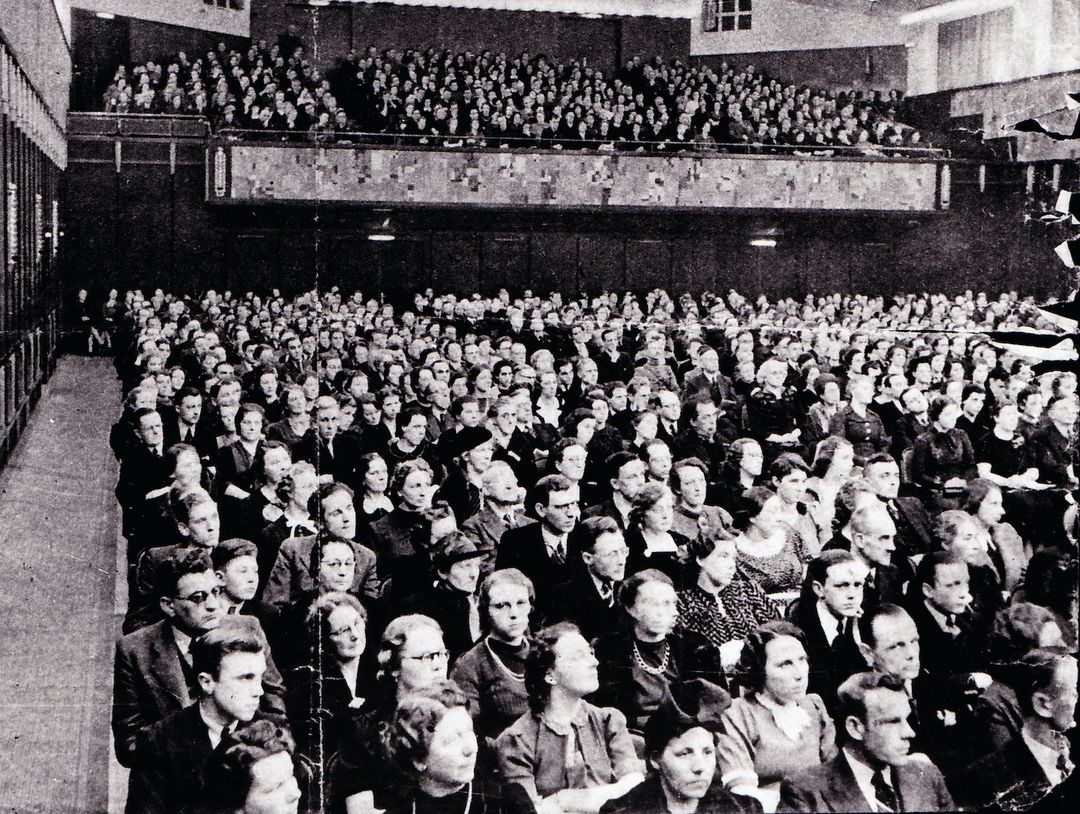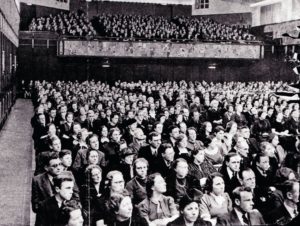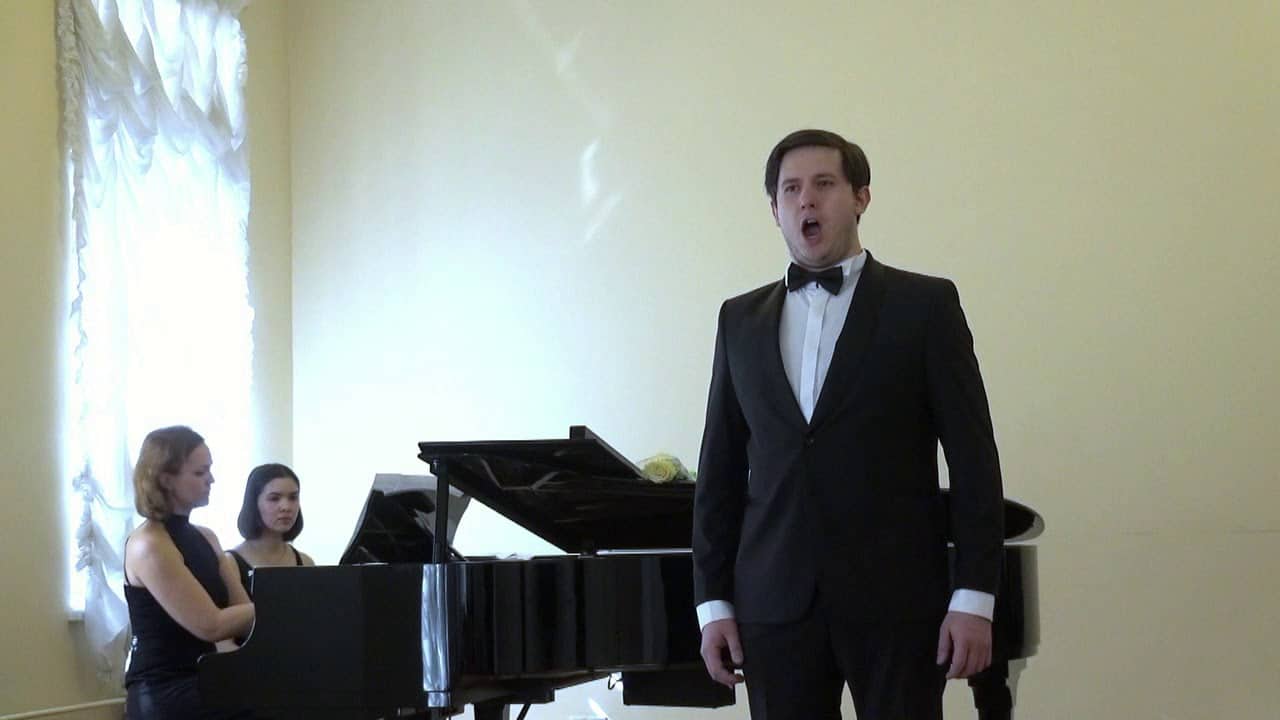Rotterdam Philharmonic re-enact the night the Germans bombed
OrchestrasMessage from the orchestra with an electrifying photo;
On May 14, we commemorate with Mahler’s Second Symphony how Rotterdam rose from its ashes after the bombardment.
This picture was taken during our orchestra’s last concert before the bombing. The program featured Beethoven’s Ninth Symphony, with the famous part “Alle Menschen werden Brüder”. According to chief conductor Lahav Shani, the affinity with Beethoven 9 is unmistakable – just because of the final chorus – but there is also a significant difference. At Beethoven, the choir is euphoric, full of energy: as soon as it is used, the symphony becomes a song for the whole world about the brotherhood between people. At Mahler, the choir starts out of nowhere, whispering, like a prayer. Only at the end there is that radiant apotheosis, abundant and at the same time very personal.
Lahav Shani on Mahler 2: “It means a lot to me that we play this symphony at the commemoration of the devastation of Rotterdam.” Because essentially, Mahler 2 is about resurrection, resurrection, a coming back to life. And that’s exactly what Rotterdam did, in an exceptional way. Keep remembering the past, that’s very important to me. Not only to prevent us from making the same mistakes over and over, but also because it helps us not to take anything for granted. ”







It still sends shivers down my spine, all these decades later.
Nice photos and story. Thanks.
The memorial concert in Rotterdam with Bernhard Haitink in 1990 was of exceptional beauty and passion. Look at the last minutes of the recording: https://www.youtube.com/watch?v=no1KswG3_2Q One of Haitink’s best Mahler 2 concerts ever.
The bombing of the historic center of Rotterdam on May 14, 1940 by Nazi German aircraft – a political terror bombing without military purpose (while the Dutch army had already surrendered to the Nazi German invasion army) – was the beginning of a series of hundreds of Allied bombings (which led to until the end of the Second World War) on the for Germany strategically important harbor area of the city. Civilian targets, a.o. including residential areas were also hit and hundreds of civilians lost their lives.
Rotterdam’s suffering did not end there: the city lost some 10,000 Jewish citizens to the Nazi extermination program. And in November 1944, between 52,000-70000 men were deported to factories in Germany after a violent slave hunt (‘Razzia’), resulting in hundreds and hundreds of fatalities.
This complex, and actually still bewildering ‘footprint’ of the Second World War in the resurrected center of Rotterdam is still very large en still strong vibrating.
Mahler’s Resurrection-Symphony articulates inimitably articulates the disastrous fate in WW2 of Rotterdam and its citizens. And its recovery and further flowering in the decades that followed.
Very interesting. I wonder what happened to this concert hall pictured. I walked around the center of Rotterdam a few years ago and noticed some old buildings that survived or were rebuilt (a church, the city hall) but I don’t recall any theaters left from before the war.
The concert hall in that picture was completely destroyed by the bombing.